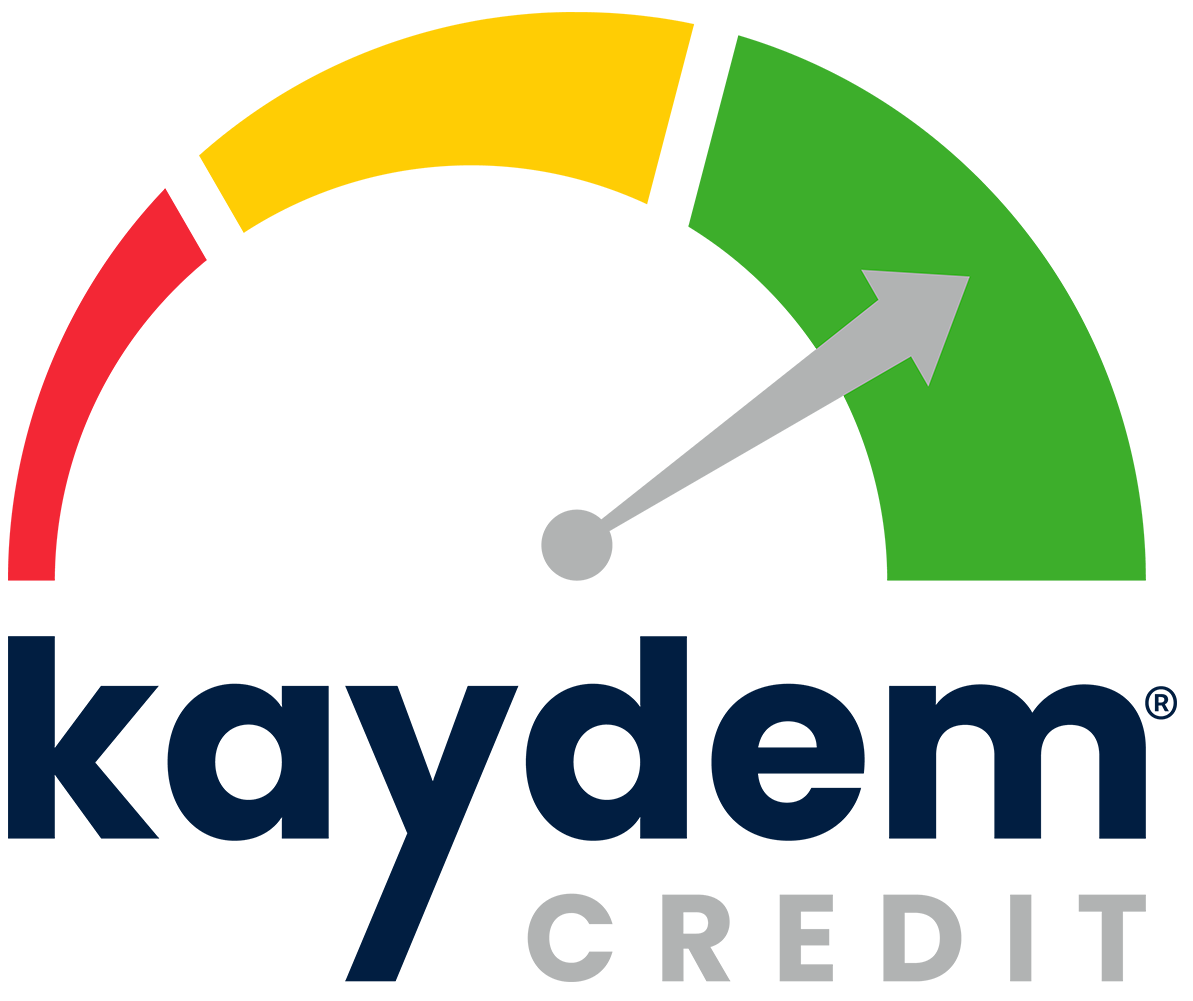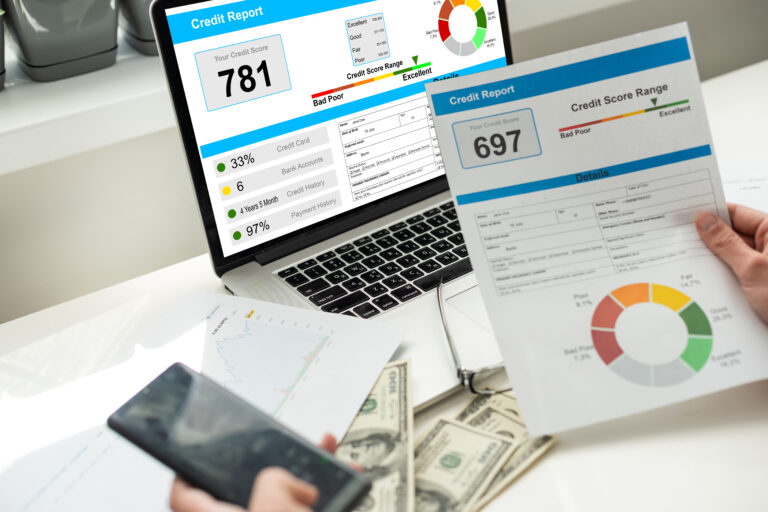Mistakes on your credit report can quietly mess with your finances. One wrong detail could lead to a loan rejection, higher interest rates, or even cost you a job. According to the Federal Trade Commission, 1 in 5 people have an error on at least one of their credit reports, and many don’t even know it.
If your credit score seems lower than it should be, start by checking your report. Cleaning it up might seem like a lot, but once you understand what to look for, it gets easier to handle. And if you’re short on time or unsure where to begin, getting professional help from Kaydem Credit Help can make the process smoother.
This guide breaks down how to clean up your credit report, fix the errors, and take steps to improve your score.
Key Takeaways
- Always check your credit reports from all three bureaus — errors are common and can hurt your score.
- Dispute anything that looks wrong, like accounts you don’t recognize or payments marked late by mistake.
- Pay down your debts, especially credit cards with high balances, to improve your credit score.
- Build good credit habits by paying bills on time and keeping your credit usage low.
- Use our credit monitoring service to stay on track and catch issues before they become bigger problems.
Start by Checking All Three Credit Reports
Trying to fix your credit without reviewing your reports is like trying to fix a leak without knowing where the water is coming from. Still, nearly one in three Americans has never checked their credit report.
To clean up your credit, start by looking at what lenders are seeing. One of the easiest ways to stay on top of it is with a reliable credit monitoring service. You can use the Fund & Grow credit monitoring tool to track changes, catch errors early, and stay updated without the stress of checking manually.
You should also get your full reports from the three main credit bureaus — Equifax, Experian, and TransUnion. You can do this by using AnnualCreditReport.com to access them for free. Right now, you can view each report weekly without paying a fee.
Look for Mistakes on Your Credit Report
Even small mistakes can bring down your credit score. As you review your reports, keep an eye out for:
- Incorrect personal information (name, address, phone number)
- Duplicate accounts or accounts you don’t recognize
- Payments marked late that were actually paid on time
- Closed accounts listed as open
- Debts that should have dropped off after seven years
Dispute the Mistakes You Find
You have the right to dispute any incorrect information on your credit report and get it removed if it can’t be verified.
Each credit bureau has its own way of handling disputes. You can file a dispute online, by phone, or by mail. Just make sure you explain the issue clearly and include any proof you have, like payment records or account statements.
Here’s what to include:
- Your full name and address
- A clear description of the error
- The name of the company that reported it
- Copies of any documents that support your case
Once you submit the dispute, the bureau has 30 days to investigate and respond. If they can’t confirm the information, it must be removed.
Pay Down What You Owe
Start by making a list of what you owe. Focus on credit cards with high balances first. These have the biggest impact on your credit score, especially if you’re using most of your limit.
If you’re behind on payments, try to catch up. Contact the lender to ask about a payment plan or settlement. Some might be willing to work with you. Lowering your balances also helps reduce your credit utilization. Professionals suggest keeping it below 30%, but the lower the better.
Add Good Activity to Your Credit Report
Once you’ve dealt with the errors and paid down what you owe, the next step is to add some positive history. This helps balance out the negative and shows lenders that you’re managing your credit well.
As stated earlier in the article, start by paying all your bills on time. That includes credit cards, loans, and even utilities if they’re being reported. On-time payments are one of the biggest factors that affect your score.
Keep your credit card balances low. Try to use only a small portion of your available credit. This shows you’re not relying too heavily on credit to get by.
If you’re building or rebuilding credit, consider a secured credit card. It works like a regular card but is backed by a deposit. Used responsibly, it can help you build a stronger payment history.
You can also ask someone you trust to add you as an authorized user on their credit card. Their good history can help boost your score, as long as they pay on time and keep their balance low.
Small steps like these can make a big difference over time.
Keep an Eye on Your Credit
Fixing your credit report is a great start, but keeping it clean is just as important. Make it a habit to check your credit often. You can use our credit monitoring service to stay updated without doing all the work yourself. It alerts you to changes, so you can take action fast if something looks off.
Let Us Help You See Real Credit Repair Progress
When you contact Kaydem Credit Help, we start by reviewing your full credit report to understand what’s helping your score and what’s working against it. Then, we take steps to remove outdated or incorrect items like missed payments, charge-offs, collections, or hard inquiries that don’t belong.
We also help update and correct your personal information. Clean and accurate details make your credit file stronger and more trustworthy in the eyes of lenders. If you’re ready to see real progress, contact us now to get started!
Frequently Asked Questions
How can I clean up my credit report fast?
Start by getting your credit reports from all three bureaus. Look for errors, dispute anything that’s wrong, and pay down high balances. You can also use a credit monitoring service to stay on top of changes and catch new issues early.
Can I remove negative items from my credit report?
Yes, if the information is inaccurate, outdated, or can’t be verified. You can dispute it with the credit bureau and ask for it to be removed. If it’s accurate and still within the reporting timeframe, it may stay until it drops off naturally.
How long does it take to fix a credit report?
Disputes usually take about 30 days to process. Building positive credit history and paying down debt can take a few months, but small changes can start to improve your score within weeks.
Do I need a credit repair company to fix my report?
You can fix your credit report on your own, but it takes time and attention to detail. If you’re overwhelmed, short on time, or dealing with multiple issues, a credit repair service like Kaydem Credit Help can help speed up the process and handle the hard parts for you.
What’s the difference between a credit report and a credit score?
Your credit report is a record of your credit history — accounts, payments, and balances. Your credit score is a number based on that report. Lenders use your score to decide how risky it is to lend to you.







